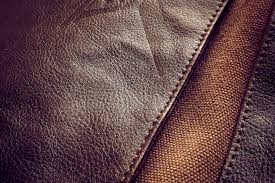
Article by
In the fashion industry, leather is a material that is manufactured from an animal's skin. The leather business ruthlessly slaughters billions of animals annually to produce jackets, coats, boots, handbags, and other accessories. Not only cattle, buffaloes, goats, and pigs are included in that. The skin of sheep, crocodiles, ostriches, kangaroos, lizards, dogs, and cats is also used to make leather. Likewise to the manufacture of wool and fur, that of leather is unnecessary and cruel. The unethical practices likely to occur in the textile and garment industries are becoming more popularly reported. In addition to causing immense suffering to billions of animals, leather tanning harms ecosystems, the environment, and the health of workers. Leather is so much more than just a by-product of the meat industry.
The leather industry is booming, but at what cost? The brutal reality is that animals, including cats, dogs, zebras, seals, sheep, alligators, snakes, and sharks, are mercilessly slaughtered for their skin. The majority of leather that Americans wear is imported from Asia, where there are almost no laws to protect animals from cruelty. China, India, Indonesia, Bangladesh, Pakistan, and Vietnam are leading countries in Asia for producing leather goods, but at the cost of animal lives. Even young animals are killed to retain their skin's softness and elasticity. Before being ruthlessly executed, they must endure torture, incarceration, deprivation, castration, and torturous treatments. Even cats and dogs are not spared. In 2018, more than 2.29 billion cows, calves, buffaloes, goats, and pigs were killed worldwide for their hide and skin to make leather. It's time to reconsider our choices and opt for alternatives that are more sustainable and humane. By choosing alternative leather products, we can contribute to the sustainability of the environment and show compassion to non-human animals, aligning with our instincts as humans.
The leather industry is responsible for the sla ughter of approximately 159 million animals each year in the United States alone, a four-fold increase from 1980. The use of animal skins for fashion purposes is no longer necessary and goes against our innate sense of compassion towards non-human animals. Synthetic leather is a less environmentally impactful option than traditional cow skin, but we must also move towards genuinely sustainable, bio-based, and recycled materials. Mirum, a plastic-free material made from natural inputs, and cork tree leather are just a few eco-friendly alternatives to traditional leather. Many individuals are opting for alternative leather products due to an increasing awareness of animal cruelty and the need for sustainability. Artificial leather, which closely resembles real leather, has also gained immense popularity in recent years due to its flexibility and positive environmental impact, making it a more ethical and sustainable choice.
 Monthly "Azeem English Magazine", launched in 2000, records the information about diverse fields like mental health, literature, research, science, and art. The magazine's objective is to impart social, cultural, and literary values to society.
Monthly "Azeem English Magazine", launched in 2000, records the information about diverse fields like mental health, literature, research, science, and art. The magazine's objective is to impart social, cultural, and literary values to society.
+92 51 88 93 092
First Floor, RAS Arcade, Eidhi Market, Street#124, G-13/4, Islamabad, Pakistan, 44000.